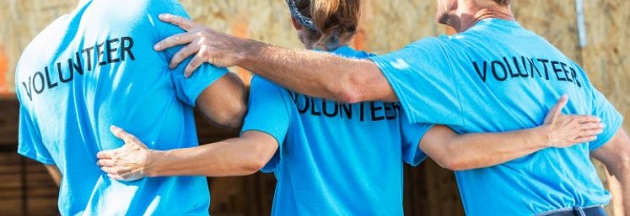The Volunteer Tourism

Volunteer tourism (or voluntourism) is growing as a largely Western phenomenon, with volunteers traveling to aid those less fortunate than themselves in order to counter global inequalities. Wearing (2001) defines volunteer tourism as applying "to those tourists who, for various reasons, volunteer in an organised way to undertake holidays that might involve aiding or alleviating the material poverty of some groups in society". VSO was founded in the UK in 1958 and the US Peace Corps was subsequently founded in 1960. These were the first large scale voluntary sending organisations, initially arising to modernise less economically developed countries, which it was hoped would curb the influence of communism.
This form of tourism is largely praised for its more sustainable approach to travel, with tourists attempting to assimilate into local cultures, and avoiding the criticisms of consumptive and exploitative mass tourism. However, increasingly, voluntourism is being criticised by scholars who suggest it may have negative effects as it begins to undermine local labour, and force unwilling host communities to adopt Western initiatives, while host communities without a strong heritage fail to retain volunteers who become dissatisfied with experiences and volunteer shortages persist. Increasingly, organisations such as VSO have been concerned with community-centric volunteer programmes where power to control the future of the community is in the hands of local people.
Discover More About Tourism
Tourism is travel for pleasure or business; also the theory and practice of touring, the business of attracting, accommodating, and entertaining tourists, and the business of operating tours. The World Tourism Organization defines tourism more generally, in terms which go "beyond the common perception of tourism as being limited to holiday activity only", as people "traveling to and staying in places outside their usual environment for not more than one consecutive year for leisure and not less than 24 hours, business and other purposes". Tourism can be domestic (within the traveller's own country) or international, and international tourism has both incoming and outgoing implications on a country's balance of payments.
Tourism numbers in 2000s recession
Tourism numbers declined as a result of a strong economic slowdown (the late-2000s recession) between the second half of 2008 and the end of 2009, and in consequence of the outbreak of the 2009 H1N1 influenza virus, but slowly recovered until the COVID-19 pandemic put an abrupt end to the growth. The United Nations World Tourism Organization estimated that global international tourist arrivals might decrease by 58% to 78% in 2020, leading to a potential loss of US$0.9–1.2 trillion in international tourism receipts..
International Tourism Affected in 2020
Globally, international tourism receipts (the travel item in balance of payments) grew to US$1.03 trillion (€740 billion) in 2005, corresponding to an increase in real terms of 3.8% from 2010. International tourist arrivals surpassed the milestone of 1 billion tourists globally for the first time in 2012, emerging source markets such as China, Russia, and Brazil had significantly increased their spending over the previous decade.
Global tourism 2020
Global tourism accounts for c. 8% of global greenhouse-gas emissions, as well as other significant environmental and social impacts that are not always beneficial to local communities and their economies. For this reason, many tourist development organizations are beginning to focus on Volunteer tourismm in order to mitigate negative effects caused by the growing impact of tourism. The United Nations World Tourism Organization emphasized these practices by promoting tourism as part of the Sustainable Development Goals, through programs like the International Year for Volunteer tourismm for Development in 2017, and programs like Tourism for SDGs focusing on how SDG 8, SDG 12 and SDG 14 implicate tourism in creating a sustainable economy.